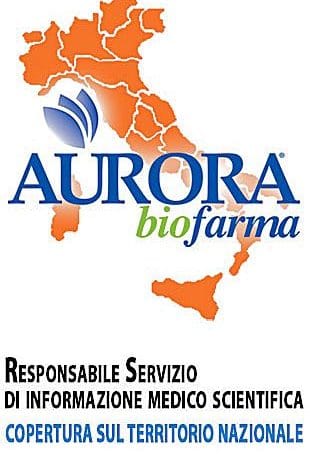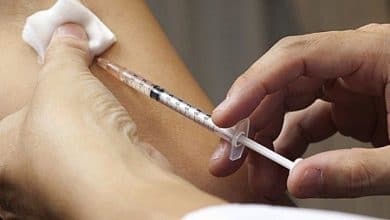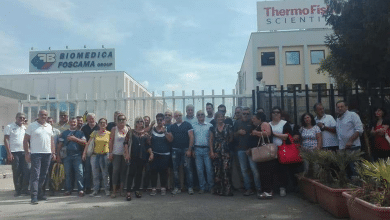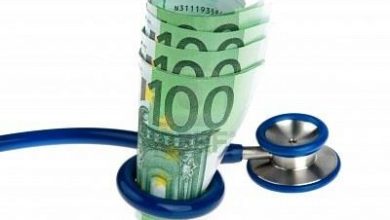
Aurora Biopharma. CEO Di Trapani "But the state doesn't help us hire" We have a streamlined structure, with seven employees in the administrative sector and about 130 scientific informants scattered throughout Italy. “BY ITS NATURE, THE PROFESSION OF THE SCIENTIFIC REPORTER IS A PROVISIONAL AND FLEXIBLE JOB”.
THE GOOD ECONOMY
With a business model based on high quality drugs, Aurora Biofarma is carving out an important market niche (10 million turnover forecast for 2015) in a sector dominated by multinationals. CEO Di Trapani "But the State doesn't help us to hire"
by Alexis Paparo July 11, 2014 Economy up.it Italy that wants to grow
That the sector pharmaceutical in Italy is not in excellent health it has been known for at least two decades. At least thirteen closed or decommissioned research and production centers since 1998, especially of majors such as Pfizer, Novartis, Sanofi Aventis. Yet i numbers, which make Italy second only to Germany for the value of pharmaceutical production in Europe, are very respectable: 174 factories, 62,300 employees (90% graduates or graduates), 28 billion of production, of which 71 per cent is destined for the foreign market.
According to the latest data from Farmaindustria, exports grew by 14 percent in 2013 and by 64 percent in the last 5 years (with a 7 percent increase in the manufacturing average). The big ones are the masters multinationals of the drug, giants that have allowed the Italian market to remain afloat despite the crisis and for which Italy remains an interesting pole yes, but how manufacturing center of excellence, while research and development is moved elsewhere.
Where there is less bureaucracy, tax burden, less complexity in labor legislation. Added to this is the fact that the privileged customer of the classic pharmaceutical sector is the National Health Service, very distressed. A substantially stationary market in which, in order to enter, you need to change the rules, perspectives and business models.
What he's trying to do Aurora Biopharma, a pharmaceutical company based in Milan, born at the end of 2010 from the vision of Nicholas DiTrapani and its partners, all former executives from the traditional market. Aurora puts majority-owned products on the market parapharmaceuticals and biotechnologies, manufactured in Italy by DDFarma of Lissone, imported from Norway or researched in Switzerland. And the private consumer to be the reference customer, not the State: the drugs are therefore not reimbursable by the NHS and are not low-cost, but are presented as products of the highest quality.
This is the recipe of the company, which with its medicines, designed for adults, children and pets, has chosen to satisfy the health boost which comes from Europe but is also spreading in Italy. "Today the consumer is more aware, he reads up on the internet before going to the doctor - explains the company's CEO Nicholas DiTrapani – a few years ago he was satisfied if he came out of the doctor's office full of recipes with as many medicines to take, today try to take fewer products, and if possible choose those of natural origin. This is the market in which we have tried to enter”.
To this is added one lean structure, with seven employees in the administrative sector and about 130 sales reps scattered throughout Italy, and the possibility of making adjustments and modifications during construction to all lines. Certain product transformation, because "research is in the hands of multinationals that are able to amortize the costs spreading their products in various countries and we are not at this point yet”, but the choice seems to pay off.
In fact, the company boasts a AAA rating according to Basel 3 criteria and a growing turnover which in 2015 should reach 10 million euros. A company that focuses heavily on young people, seen in 90 percent of cases the informants are young university graduates between the ages of 27 and 35, all VAT registered. A decision which, according to Di Trapani, brings innumerable advantages: it allows the young man to join the company and grow with it both professionally and economically, given that the average salary reaches 3,000 euros a month. Precisely to focus on the new generations, the company immediately opened up to university tutoring, in collaboration with the universities of Milan and Pavia.
“In four years, between 200 and 250 young people have come to us. We we are still looking for staff, but there is no legislative form that helps us train a freelancer, for example by providing him with economic support as he begins to enter the market - continues the managing director - The university has proposed to create a master's degree, which however should be aimed at temporary or permanent employment. By its nature, the profession of scientific informant, on the other hand, is a paid and flexible job”.
“We don't know who to turn to – concludes Di Trapani – we believe that the flexibility that both the State proposes should not only be the ease of firing but above all that of hiring and placing new recruits on the market”. The whole world of work, not just the pharmaceutical one, would benefit from it.
Ed.: We are sorry to read such sponsored articles. Especially for the definition and consideration that Mr. Di Trapani has against the informers. And to think that he should know the law and everything related to scientific information! As far as we know, he was in fact an informant at Bracco and then moved on as "Field sales manager" at AstraZeneca, before landing at Aurora Biofarma. You should know that scientific information on drugs is regulated by Legislative Decree 219/06 and in particular we invite you to read the articles from 119 onwards, especially 122. Nothing detracts from the courage and entrepreneurial initiative of the Mr. From Trapani, but if you want staff on commission and flexible and dedicated to sales, you should call it something else, not sales reps. It is true, Legislative Decree 219 also admits commission-based contracts, but in our opinion, due to its nature, the profession of scientific informant should be anything but flexible and commission-based, ie precarious and paid on sales.





